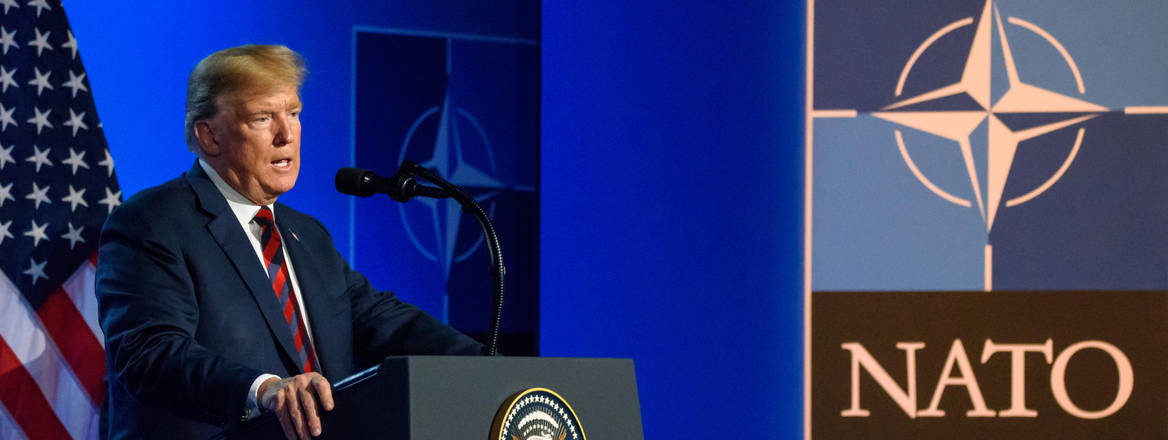Bracing for 2025: The UK and European Security Under a Trump Presidency
This paper examines the possibility of Donald Trump’s potentially radical programme of change, both at home and abroad, with a focus on the US foreign policy programme. It outlines the economic factors underpinning US defence and security and explores the question of alliances, especially in relation to Ukraine. The paper concludes with an overview of the impact of a second Trump presidency on UK and European defence priorities.
If Donald Trump were to be re-elected this year, a rapid reduction in US aid to Ukraine seems probable. European allies could also face the prospect that the US’s commitment to NATO might be ended, or at least substantially reduced.
Even if a Democrat is returned to the White House, they will face the reality of a US defence budget that is both fiscally constrained and increasingly stretched geographically.
The Ukraine war has already led to European rearmament on an often- underappreciated scale. European defence spending has increased by 60% since the 2014 invasion and is set to increase further in the years ahead. The most remarkable increase is in Germany, whose commitment to spending 2% of its GDP on defence could, if sustained over the coming years, make it Europe’s most formidable conventional power. These new defence investments across Europe, combined with the destruction of a large part of Russia’s capability in battle, offers an opportunity for Europe to take on a larger share of the burden of its own defence.
If the US were to substantially reduce its military contribution to NATO, debate would intensify on reforming the institutional architecture of European defence. But the immediate priority would be to steady the ship, ensuring that the major European powers, working closely with NATO and the EU, take a united stance against any Russian attempt to take advantage of US withdrawal.
For the next decade at least, there will be strong pressure on the UK to prioritise those capabilities that are most important in providing for European defence, especially those which fill any gaps left by a possible American withdrawal. Although UK defence spending has grown more slowly than that of other European countries, the re-emergence of an acute threat from Russia has driven a commitment to a major recapitalisation of the UK’s nuclear capability.
WRITTEN BY
Malcolm Chalmers
Former Deputy Director General, RUSI
- Jim McLeanMedia Relations Manager+44 (0)7917 373 069JimMc@rusi.org


